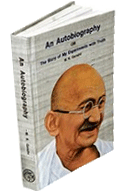Gandhi Journal Article-II ( October 2016 )
Skill Development in India - The Gandhian Perspective
By Dr. Y.P. Anand
One of the primary ‘missions’ for taking India forward being pursued at present on a national scale is ‘Skill India’ or making Indians, especially its upcoming youth, much more skilled in the various crafts, trades, industries and professions.
It would act as an ideal inspiration for both the propagators and the students of ‘Skill India’ mission to know that Mahatma Gandhi, all through his long public life (1893 till 30 January, 1948) invariably insisted on use of better and higher skills for working in whichever task or field he happened to be concerned with at any time. He believed in a constant and continuous learning process including experimentation, keeping the ideal as the goal but also knowing that human beings must always keep improving and rising in their skills but can never attain absolute perfection. Hence, he also called himself a ‘practical idealist’, going from ‘truth to truth’. He himself practiced the pursuit of skill in whatever he did even more than he told others to do.
In this paper an attempt has been made to give a summarized presentation of the multi-faceted Gandhian perspective on the critical role, application and development of varied skills in the numerous fields with which he was involved. Though his interest in the promotion of skills related to nearly any major activity he came across was sustained throughout, his longest and deepest engagement remained with the promotion of the skills required in the propagation of khadi (particularly that of hand-spinning) and other village industries. The promotion of khadi and other village industries was an essential part of his lifelong struggle for India’s freedom from foreign rule as well as for removal of poverty and economic morass into which India had sunk.
It would act as an ideal inspiration for both the propagators and the students of ‘Skill India’ mission to know that Mahatma Gandhi, all through his long public life (1893 till 30 January, 1948) invariably insisted on use of better and higher skills for working in whichever task or field he happened to be concerned with at any time. He believed in a constant and continuous learning process including experimentation, keeping the ideal as the goal but also knowing that human beings must always keep improving and rising in their skills but can never attain absolute perfection. Hence, he also called himself a ‘practical idealist’, going from ‘truth to truth’. He himself practiced the pursuit of skill in whatever he did even more than he told others to do.
In this paper an attempt has been made to give a summarized presentation of the multi-faceted Gandhian perspective on the critical role, application and development of varied skills in the numerous fields with which he was involved. Though his interest in the promotion of skills related to nearly any major activity he came across was sustained throughout, his longest and deepest engagement remained with the promotion of the skills required in the propagation of khadi (particularly that of hand-spinning) and other village industries. The promotion of khadi and other village industries was an essential part of his lifelong struggle for India’s freedom from foreign rule as well as for removal of poverty and economic morass into which India had sunk.
